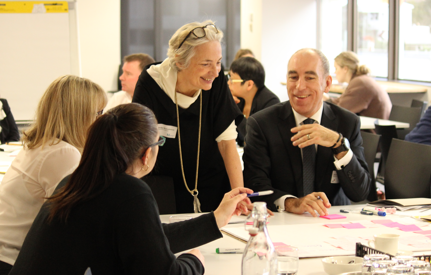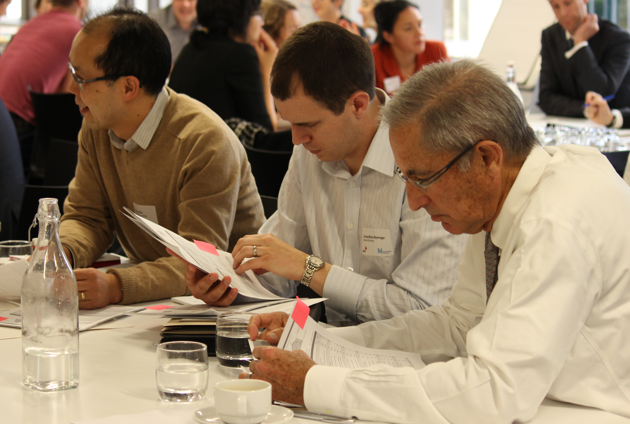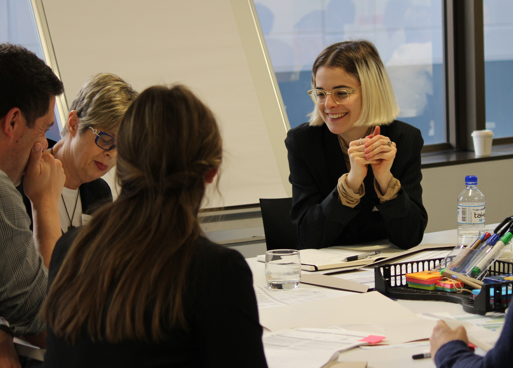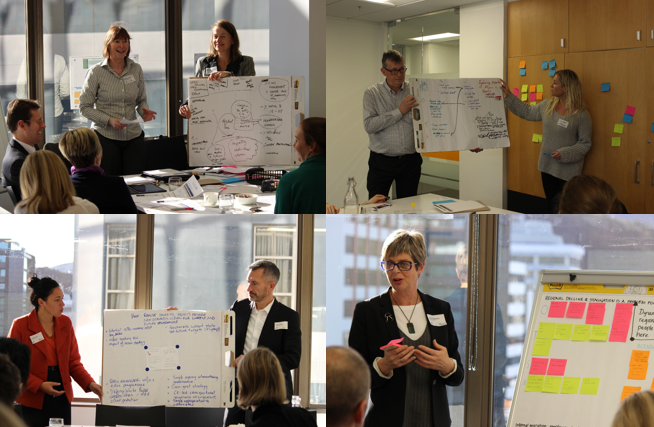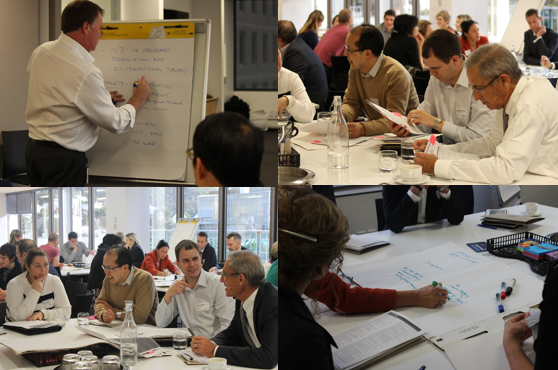On 14 July 2016, in collaboration with PricewaterhouseCoopers (PwC) the Institute hosted the one-day workshop, Strengthening strategy stewardship in the public service. The workshop aimed to explore how the New Zealand public service might better prepare and publish Government Department Strategies (GDSs).
Grant Dennis, PwC, opened the workshop by welcoming participants and setting out the purpose of the day: to develop a draft Guide for Developing Government Department Strategy Documents. The first panellist of the day was Ian Ball, Chairman of the Chartered Institute of Public Finance and Accounting (CIPFA) International and Chairman of the Audit Committee for the Financial Statements of the New Zealand Government. Ian discussed the growing role of strategy in the New Zealand public financial management framework. He outlined three key concepts in the framework: i) performance , ii) accountability, iii) integrated management system.
You can download Ian Ball’s PowerPoint here, or view it below.
Participants then heard from Maddy Foreman, Research Analyst at the McGuinness Institute, who has been working on the Institute’s StrategyNZ and ReportingNZ project. Madeleine shared observations from the Institute’s GDS Index research, highlighting that many government departments failed to articulate how their strategy documents would be achieved. She also noted that many strategy documents did not acknowledge the failures of programmes, or lessons that may have been learnt from previous strategies.
You can download Maddy Foreman’s PowerPoint here, or view it below.
Maddy was followed by Stephen Cummings, Professor of Strategic Management at Victoria University. Stephen explained how to simplify strategy documents by drawing them on one page. He asserted that there are two ‘Ps’ of strategy: plan and pitch. Strategy document drafting entails both the development of a strategic plan and then communication of the plan, alongside engagement with those who have to execute the plan. Stephen argued that strategies need to be seen in terms of actionable items, and assessments of what can be done to ‘win’ the pitch. Stephen also co-wrote the book Strategy Builder: How to create and communicate more effective strategies.
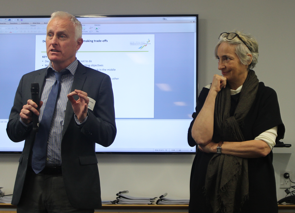
Stephen Cummings, Professor of Strategic Management at Victoria University and Wendy McGuinness of the McGuiness Institute at the StrategyNZ workshop
Dr Simon Wakeman, Principal Advisor at the New Zealand Productivity Commission, then spoke about the lessons a private/business sector approach perspective can lend to the public sector. He argued that strategy is about navigating major trade-offs, which will ultimately enhance consumer perception of the brand and therefore their willingness to pay for services. In his explanation of this Simon used the example of Ryanair – the largest airline for international passenger numbers, which has sustained profitability in a difficult industry through strategic navigation. Simon has recently joined the Social Investment Unit, a new government agency charged with leading the drive to implement a ‘social investment approach’ into New Zealand Government policy and decision making.
You can download Simon Wakeman’s PowerPoint here, or view it below.
Panelists then moved around the groups answering questions and engaging in discussions, while participants completed exercises designed to generate thinking on the purpose of strategy documents. Exercise one asked participants in groups, what is the purpose of a government department strategy? The next exercise moved participants into thinking about the components of a ‘good’ strategy.
Groups were separated into the categories: tackling poverty, improving civics education, utilising private data for social investment, improving ocean governance, attracting and retaining international talent, and improving regional economics. Each group had an hour to develop their strategy. The groups then presented their strategy pitch back to the plenary, stepping the audience through the processes that they used to structure their strategic content.
In the afternoon, each group prepared a draft guide for government departments to use as a checklist for the content of strategy documents. This encouraged participants to think about the monitoring, assessment, reporting and evaluation of strategies. These draft guides were presented to the other participants and panelists, who stress-tested their ideas.
Andrew Jackson, Chief Executive at the Ministry of Transport, joined Ian Ball and Wendy McGuinness on a closing panel, where they discussed next steps for the StrategyNZ project . All expressed the satisfaction they felt at sensing a strong ‘strategy community’ emerging in the room.
Next steps
i) The output from the workshop discussions will be a working paper titled Draft Guide for Developing Government Department Strategy Documents, which we intend to publish in November 2016.
ii) The Guide will form part of the Institute’s upcoming Report 15: Strengthening Strategy Stewardship in the Public Service. This report is a culmination of three years’ worth of GDS Index results, historical research on the strategy stewardship system, and the Institute’s recommendations for the further strengthening of this system going forward.

